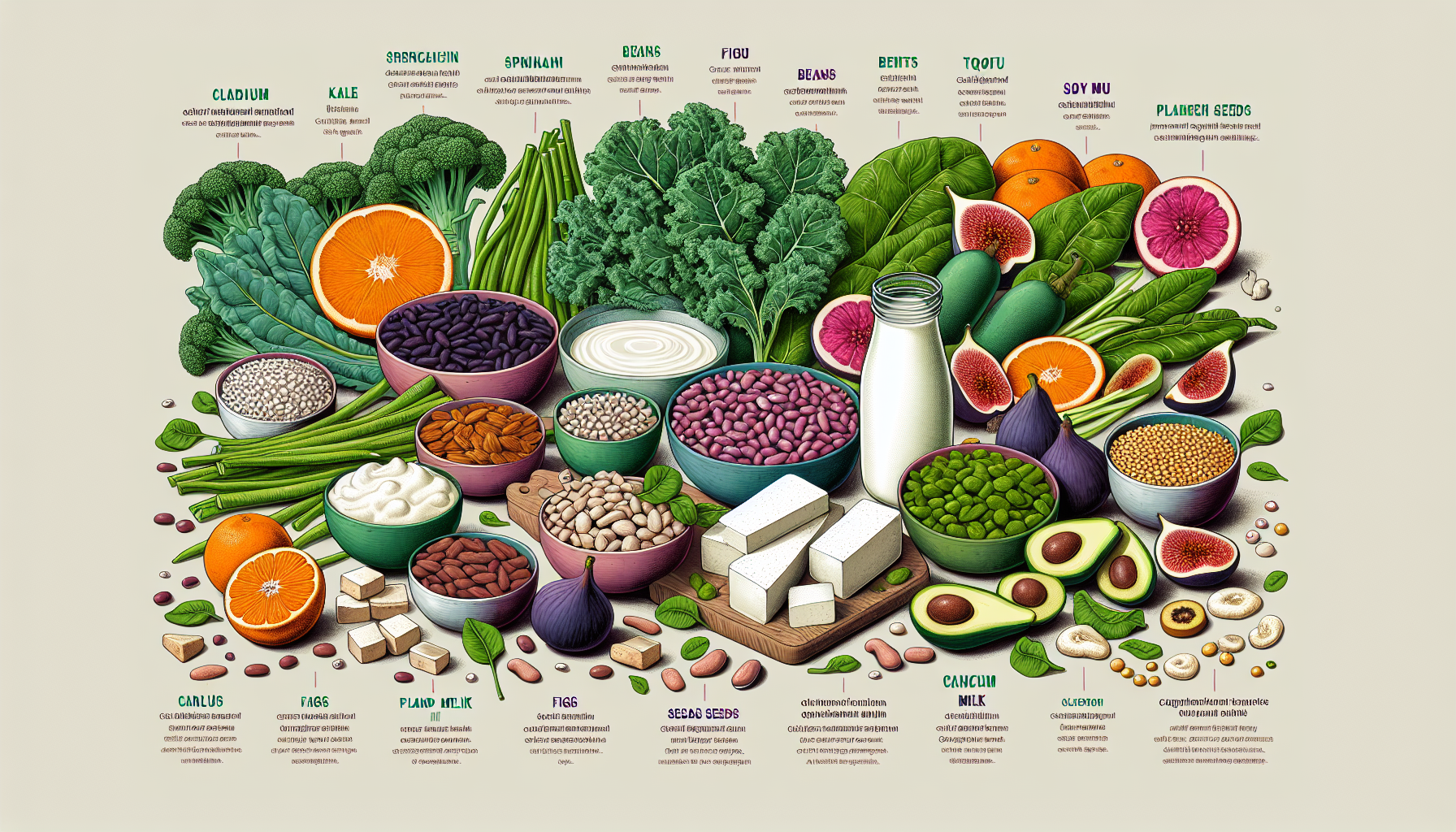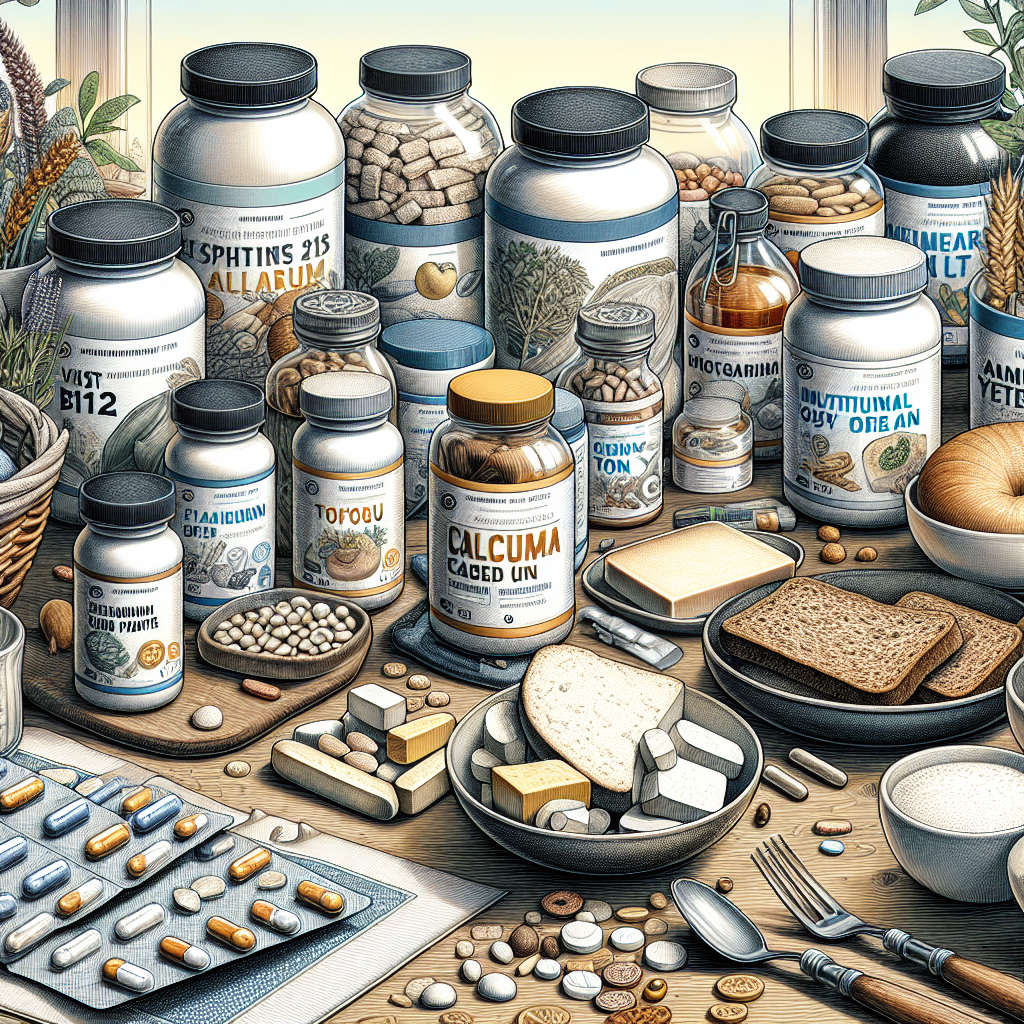The pursuit of a healthy lifestyle includes a careful assessment of dietary choices, especially when those choices exclude certain categories of foods. Vegan diets, which are devoid of animal products, present unique challenges and opportunities for maintaining optimal bone health. This comprehensive exploration will delve into the considerations necessary to ensure that individuals following a vegan diet can support and maximize their bone density.
The Foundation of Bone Health
Bone health is fundamental to our overall well-being. It is the infrastructure upon which our body is built, providing structure, protecting organs, anchoring muscles, and storing calcium. Maintaining healthy bones is a complex process that involves a variety of nutrients, including but not limited to calcium, vitamin D, vitamin K, and magnesium. For those on vegan diets, it becomes essential to source these nutrients from plant-based foods or supplements to prevent bone density loss.
Vegan Diet and Bone Density
A vegan diet can provide all the necessary nutrients for bone health, but it requires careful planning. The absence of dairy products, often a primary source of calcium in many diets, means that vegans must find alternative sources of this vital mineral. Leafy greens such as kale, collards, and bok choy, as well as fortified plant milks and juices, can fill this gap. However, the bioavailability of calcium from plant sources can vary, and factors such as oxalates found in spinach and swiss chard can inhibit calcium absorption.
To offset these challenges, it is important for vegans to include a variety of calcium-rich plants and fortified foods in their diet and to be mindful of other dietary components that can enhance or inhibit calcium uptake. For example, vitamin D, which can be synthesized from sunlight exposure, increases calcium absorption. It can also be found in fortified foods or taken as a supplement.
For further information on the foundational aspects of bone health, readers are encouraged to visit Bone Health.
Key Nutrients for Vegan Bone Health
Calcium
While dairy products are a well-known source of calcium, several plant-based options can help meet the recommended daily intake. These include fortified plant milks, tofu made with calcium sulfate, and leafy green vegetables.
Vitamin D
Vitamin D is crucial for calcium absorption. While sunlight is the primary source, the vegan diet can be supplemented with fortified foods or vitamin D2 or vegan vitamin D3 supplements.
Vitamin K
Vitamin K plays a significant role in bone metabolism and can be found abundantly in green leafy vegetables like kale, spinach, and collard greens.
Magnesium
Magnesium contributes to bone health by converting vitamin D into its active form and can be found in nuts, seeds, whole grains, and leafy green vegetables.
Protein
Adequate protein intake is also essential for bone health. Vegan sources of protein include lentils, chickpeas, nuts, seeds, and whole grains.
For an in-depth understanding of how these nutrients work in synergy for bone repair and regeneration, the article Exploring the Role of Antioxidants in Bone Repair and Regeneration provides valuable insights.
Potential Challenges and Solutions
Adopting a vegan diet does not inherently lead to bone health issues, but vegans may be at increased risk if their diet is not appropriately balanced. Attention to certain nutrients is critical in safeguarding bone density.
Addressing Potential Nutrient Deficiencies
While a well-planned vegan diet can cover all nutritional bases, certain nutrients are more challenging to obtain solely from plant-based sources. Here are common concerns and how to tackle them:
Omega-3 Fatty Acids
Omega-3s are vital for bone density and overall health. While fish is a common source, vegans can turn to flaxseeds, chia seeds, hemp seeds, and walnuts, or consider algae-based supplements.
For a closer look at the importance of omega-3s in bone health, refer to the article Role of Omega-3s in Bone Density and Joint Health.
Protein
Adequate protein intake is important for bone structure. Vegans should ensure they are getting enough protein from a variety of plant sources such as legumes, nuts, seeds, and whole grains.
Iodine
Iodine is crucial for thyroid function, which in turn affects bone health. Seaweed or iodine-fortified foods can be included in a vegan diet to meet the necessary intake.
Lifestyle Factors Influencing Bone Health
Diet is just one aspect of maintaining bone density. Other lifestyle choices, such as regular exercise, are vital in building and maintaining bone strength.
For instance, weight-bearing exercises like walking, running, and resistance training help stimulate bone formation and preserve bone mass. Additionally, lifestyle habits such as avoiding smoking and excessive alcohol consumption can further protect bone health.
For more information on how exercise contributes to bone health, the article The Importance of Regular Exercise in Bone Health Maintenance is a valuable resource.
External Sources for Further Reading
To deepen the understanding of bone health considerations for vegans, here are several niche resources that provide additional insights:
- The Vegan Society offers comprehensive guidelines on how to meet calcium needs on a vegan diet.
- A study published in the American Journal of Clinical Nutrition details the effects of protein intake on bone health, which can be particularly relevant for vegans who need to monitor their protein sources.
- The National Osteoporosis Foundation provides a detailed examination of vitamin D and bone health, including insights applicable to those on a vegan diet.
Conclusion
Adhering to a vegan diet requires mindfulness and strategic planning to support bone health. By understanding the role of various nutrients, actively seeking plant-based sources, and incorporating lifestyle habits that promote bone density, vegans can effectively maintain strong and healthy bones. With the right knowledge and resources, a vegan diet can be both nutritionally complete and supportive of optimal bone health.



